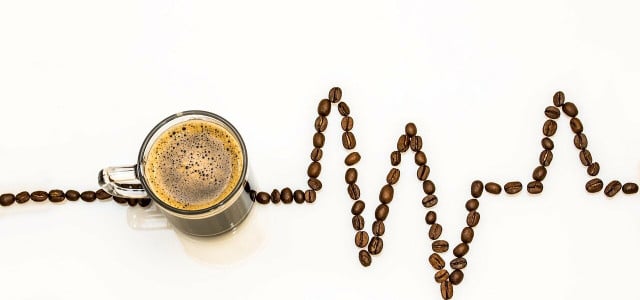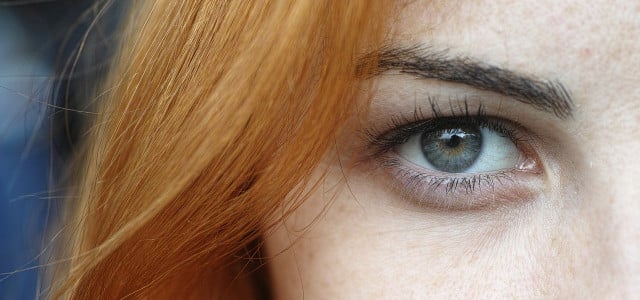Got the jitters and want to get that caffeine out of your system? Although there’s no way to magically clear caffeine from the body, there are a few things you can do to ease through the effects of drinking too much.
Research shows that drinking a few cups a day is safe and can help improve cognition. Doctors generally cap healthy caffeine consumption at 400 milligrams of caffeine a day. That’s about the amount contained in four cups of brewed coffee or 10 cans of cola. But how much coffee you can safely drink, also depends on your body weight as well as other factors. So it’s best to always consume drinks with caffeine in moderation. Although a couple cups of joe can help you wake up and tackle the morning, drinking coffee all day long is not a good idea. If it did happen to you, you can try a few natural ways to ease the effects of caffeine while you wait to get it out of your system.
How Caffeine Works
Caffeine works by blocking adenosine uptake in the brain. Adenosine is an organic compound found in all cells and plays a significant role in the feeling of drowsiness. When you drink caffeine, which has a molecular structure similar to adenosine, the caffeine that enters your neuron’s receptors blocks the uptake of adenosine. This increases the amount of adenosine that enters the bloodstream and leads to an increase in the production of adrenalin. Caffeine uptake also leads to an increase in dopamine, a neurotransmitter that plays a significant role in the perception of reward and pleasure.
We can think of the boost that coffee gives us as a kind of healthy stress— but only if it’s short-term. By drinking too much caffeine for too long, you’re blocking you’re bodies ability to promote natural rhythms of rest, which can result in a caffeine crash once the adenosine comes rushing back in. By drinking too much caffeine, you run the risk of turning that healthy short-stress into debilitating long-term stress — a state usually associated with headache, fatigue, anxiety, and fidgeting.
Getting Caffeine out of Your System
If your shaky hands and anxious thoughts are hinting that you’ve had too much caffeine to drink, you will have to wait to get the caffeine out of your system.
However, there are 4 things you can do to ease the effects of drinking too much caffeine:
- drink water
- relax
- eat good food
- take a walk
See if you can take a 30-60 minute break in your day and do all the things listed above to naturally curb your java-juiced jitters.
Hydrate
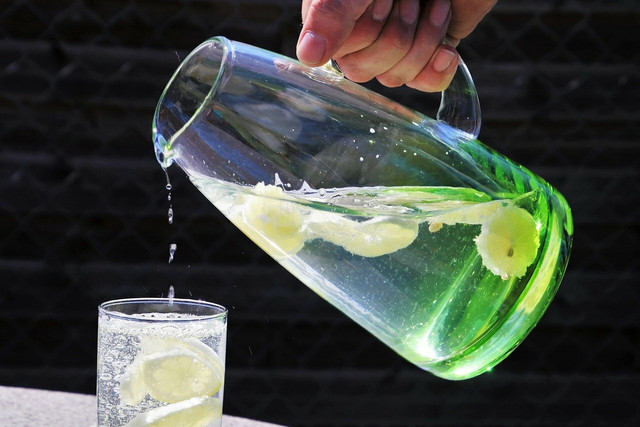


(Foto: CC0 / Pixabay / pasja1000)
Caffeine is only a mild diuretic and is not terribly dehydrating. The danger of drinking a lot of coffee comes from forgetting to drink water while downing caffeine and, for example, staring at the computer all day. Staying hydrated is essential to your health because without enough water our brains can’t function efficiently.
A general rule to keep in mind while drinking caffeinated beverages like coffee (or other diuretics like alcohol for that matter), is to drink an extra glass of water for every caffeinated or alcoholic beverage you consume on top of the 8 daily glasses of water you already should be drinking. Consider that if if you drink three cups of coffee, you want to aim for about 11 glasses of water in total.
Relax
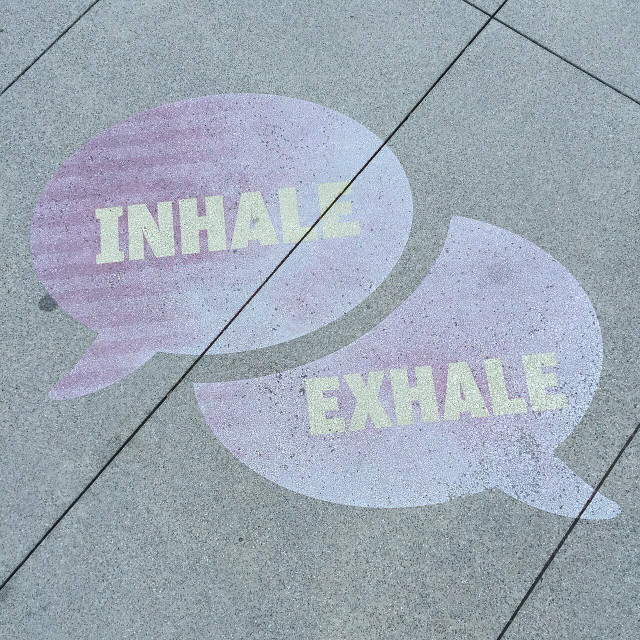


(Foto: CC0 / Pixabay / kathleenport)
There’s no natural way to get caffeine out of your system quickly. But the behavior and feelings associated with drinking too much caffeine —like headache, anxious thoughts, and fidgeting— may be tied to what’s driving you to drink so much in the first place; be it work, a school project, or a long drive in heavy traffic.
Take a moment to reflect on how you breathing, what your body feels like, and try to slow yourself down. Simply taking a pause from work and focusing on your breathing for a few minutes can zap anxious thoughts and fidgeting. Studies on relaxation techniques, like progressive relaxation, have shown that simple methods like focusing on the breath and body while gently flexing and relaxing different muscles can decrease blood pressure and reduce feelings of anxiety.
Eat
If your race to beat a deadline is fueled by energy drinks, consider how those sweet soft drinks stuffed with sugar are filling your stomach and leaving it empty of the nutrition it needs to support effective function and thought. Not eating can cause an increase in the negative effects of too much caffeine, like irritability and anxiety — the last thing anyone wants to be is jittery and hangry.
Taking a proper lunch break can help you to clear your mind and change your tempo, while you are waiting for excess caffeine to pass through your system.
Move



(Foto: CC0 / Pixabay / StockSnap)
Physical exercise is known to naturally increase dopamine. Although caffeinated drinks increase blood pressure, you’re not helping your heart by sitting at the desk all day worrying about work. So while waiting for the caffeine to pass through your system, a little exercise certainly won’t hurt.
Getting some exercise, or merely taking a stroll through a park or forest, will help get blood and oxygen to the rest of your body in the ways it needs, and will also help you clear your head of the stress-inducing environment that’s got you drinking too much caffeine. A study on the effects of walking in a forest on young women found that a stroll through the woods promoted a state of relaxation and decreased heart rate.
Avoid Getting Too Much Caffeine in Your System in the Frist Place
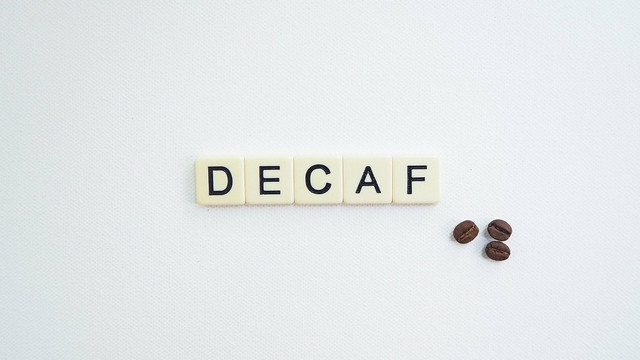


(Foto: CC0 / Pixabay / coffeegeek)
Are you a serious caffeine consumer? If you’re wondering how to curb your usage — so you don’t suffer from the effects of caffeine withdrawal, like headache and migraines, anxiety, depressed mood, irritability, and more — consider how your habit might be a caffeine fix. Although caffeine isn’t considered to be an addictive drug like cocaine, most everyone builds up a tolerance; there’s nothing like that first morning cup of joe (especially if you haven’t had any coffee all week long).
If you know you’re often chasing the caffeine-dragon, first try to curb your consumption by being mindful of how many cups you drink in a day and finding your limit. This way, you can stop yourself before you get too much caffeine in your system in the first place. Remember: Although 400 milligrams of caffeine is the general limit, everyone is different.
Also, coffees are different (and you might not realize how much caffeine is really in your drink). A “Venti”-size Starbucks blonde roast already exceeds the recommended daily amount of caffeine. Find your limit and stick to it, then find out where you can squeeze in better habits throughout your day, like drinking water, eating healthy, and finding times to relax.
If you’re tiring to cut down on caffeine but you love coffee, consider having a decaf. They have a tiny bit of caffeine content, but not enough to feel like a caffeinated coffee — although with a bit of cream and sugar it can still serve as a nice morning pick-me-up.
Read on:
- Can You Eat Pumpkin Skin? Hokkaido, Butternut Squash, and More
- 8 Benefits of Being Vegan & Potential Drawbacks
- Americans are Not Making the Connection Between Food and Climate Change
Important Information regarding Health-related Topics.
** Links to retailers marked with ** or underlined orange are partially partner links: If you buy here, you actively support Utopia.org, because we will receive a small part of the sales proceeds. More info.Do you like this post?






